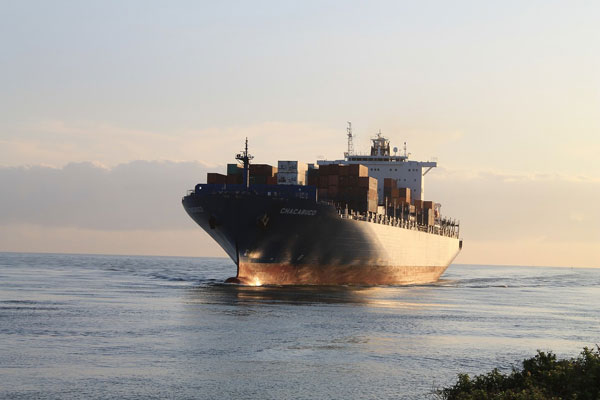United States launches strikes on Houthi sites

[Commercial cargo ship like those attacked by Houthis, Source: Pixabay]
Amidst the Houthis’ constant drone and missile attacks on commercial ships in the Red Sea, the United States and United Kingdom have launched airstrikes on more than a dozen Houthi sites.
The first wave of strikes occurred on January 12th.
These initial strikes targeted over60 targets in 16 locations and were carried out by US fighter jets and aircrafts from regional bases and aircraft carriers.
The targets included logistics centres, air defence systems and weapons storage sites, such as a site in Bani used for reconnaissance and Abs Airport used for the launching of drones and cruise missiles.
Additionally, the United States launched additional strikes on locations of significance such as a radar site near Sanaa and intercepted anti-ship missiles being used to target commercial shipping operations in the Red Sea.
The Houthis, backed by Iran, are in support of Hamas in the Israel-Hamas conflict.
The group solidified their support following the Hamas massacre on the 7th of October; their leader stated that Houthi forces were “ready to move in the hundreds of thousands to join the Palestinian people and confront the enemy.”
Since the start of the conflict in Gaza, the Houthis have launched multiple missile and drone strikes on vessels in the Red Sea, one of the most frequently used shipping routes.
However, the majority of these attacks were intercepted by the United States and Israel.
On the 19th of November, the Houthis took the crew of a car carrier hostage.
The carrier in question was chartered by a Japanese company and had ties to a Jewish businessman.
The ongoing attacks by the Houthis in the Red Sea led to many shipping companies avoiding the region.
In response, the United States-led “Operation Prosperity Guardian,” a military operation by a multinational alliance, was formed.
The operation aimed to ensure the freedom of navigation and the safety of maritime travel in the Red Sea region.
The United States refrained from direct engagement with the Houthis until an incident on the 31st of December, when US Navy helicopters opened fire on a group of militants boarding a protected boat, resulting in the deaths of 10 individuals.
Following this incident, the United States and other countries issued an ultimatum to the Houthis to cease their aggression.
The United States further emphasised the necessity for robust retaliation against the Houthis’ actions.
A day before the strike, the United Nations Security Council passed a resolution condemning Houthi actions in the Red Sea.
However, during the voting procedure for the resolution, Russia, China, Algeria and Mozambique abstained .
Despite the United States’ warnings, Houthi aggression in the Red Sea persisted, ultimately leading to the eventual decision to approve strikes on the organisation’s sites.
The United States further suggested that Iran has a role in influencing the Houthis to cease their activities, warning of consequences if they don't comply.
The Houthis criticised the strikes, with their Deputy Foreign Minister, Hussein al-Ezzi, describing the strikes as a "massive aggressive assault.”
In addition, the group’s military spokesperson stated their intention to continue aggression against commercial ships in the region.

- Jaehoon Song / Grade 10
- North London Collegiate School Jeju

![THE HERALD STUDENT REPORTERS [US]](/assets/images/logo_student_us.png)
![THE HERALD STUDENT REPORTERS [Canada]](/assets/images/logo_student_ca.png)
